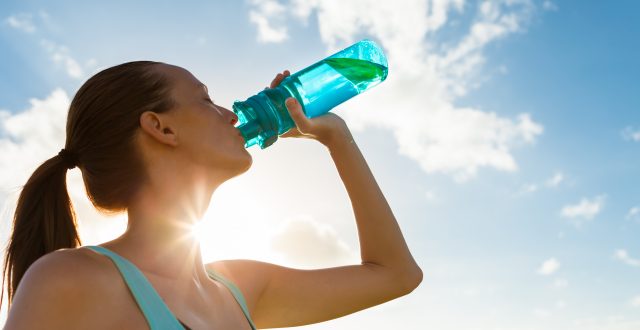Water is the essence of life. It’s a vital resource that powers your body, ensures optimal functioning, and even impacts your physical performance. Yet, many of us overlook just how critical proper hydration is. In this blog, we’ll explore the importance of staying hydrated, its profound benefits on physical and mental health, and how to make hydration a sustainable habit in your daily routine.
The Impact of Dehydration on Performance

Did you know that being dehydrated by as little as 2% can negatively impact your physical performance? This level of dehydration can cause fatigue, reduce endurance, and impair strength. Whether you’re an athlete, a weekend warrior, or someone looking to stay active, hydration plays a pivotal role in ensuring you perform at your best.
Dehydration affects the body in several ways:
- Muscle Cramps and Fatigue: Water helps transport essential nutrients to muscles and removes waste products. Without enough water, muscles can cramp and tire quickly.
- Decreased Energy Levels: Even mild dehydration can lead to feelings of exhaustion. Your body relies on water to produce energy efficiently.
- Reduced Cognitive Function: Staying hydrated isn’t just about physical performance—it also impacts your mental clarity and focus.
Beyond Thirst: The Role of Water in Your Body

Water is involved in nearly every bodily function. Here’s a closer look at why hydration is vital:
- Joint Lubrication: Proper hydration keeps joints well-lubricated, reducing the risk of discomfort and injury during physical activities.
- Improved Digestion: Water aids digestion by helping to break down food and transport nutrients. It also prevents constipation by softening stool.
- Brain Function: Your brain is about 75% water. Even slight dehydration can impair concentration, memory, and mood.
- Temperature Regulation: Water helps regulate body temperature through sweating, ensuring your body stays cool during exercise or in hot environments.
- Waste Removal: Adequate hydration supports kidney function, helping to flush out toxins and maintain overall health.
Hunger or Thirst? Understanding Your Body’s Signals

Many people confuse thirst with hunger. This mix-up often leads to unnecessary snacking when what the body truly needs is water. Next time you feel a craving coming on, try drinking a glass of water first to see if the feeling subsides.
Hydration also plays a role in appetite control:
- Boosting Metabolism: Drinking water can temporarily increase your metabolism, helping your body burn more calories.
- Suppressing Hunger: Staying hydrated can help you feel fuller, reducing the urge to overeat.
How Much Water Do You Need?

The amount of water you need varies based on factors like age, weight, activity level, and climate. A common recommendation is to drink at least 8 cups (64 ounces half a gallon) of water per day. However, athletes or those in hot environments may require significantly more.
A helpful guideline is the “8×8 Rule”—drink eight 8-ounce glasses of water daily. Alternatively, aim to consume half your body weight in ounces. For example, if you weigh 160 pounds, strive for 80 ounces of water each day.
Making Hydration Enjoyable

Let’s face it: plain water can get boring. If you struggle to meet your daily hydration goals, try these tips to make drinking water more enjoyable:
- Infuse Your Water: Add fresh lemon, mint, cucumber, or berries for a burst of flavor.
- Set Reminders: Use a water-tracking app or set alarms to remind yourself to drink throughout the day.
- Invest in a Fun Bottle: A reusable water bottle with measurement markers can help you stay on track.
- Start and End Your Day with Water: Begin your morning with a glass of water and make it the last thing you drink before bed.
Signs You’re Not Drinking Enough Water

It’s easy to underestimate your water needs. Here are some signs you might be dehydrated:
- Dry mouth or cracked lips
- Dark yellow urine
- Feeling tired or sluggish
- Headaches
- Dizziness or lightheadedness
If you notice these symptoms, it’s time to prioritize hydration.
The Connection Between Hydration and Weight Management

For those looking to manage or lose weight, hydration is a secret weapon. Drinking enough water can:
- Reduce Caloric Intake: Choosing water over sugary drinks eliminates unnecessary calories.
- Improve Workout Performance: Staying hydrated ensures you can give your best effort during exercise, maximizing calorie burn.
- Support Fat Metabolism: Water plays a crucial role in metabolizing stored fat into energy.
A Day of Hydration: Practical Tips

Here’s a simple hydration plan you can follow:
- Morning: Start with a glass of water to kickstart your metabolism.
- Throughout the Day: Drink a glass of water before meals to curb appetite and aid digestion.
- During Workouts: Sip water during exercise to replace lost fluids.
- Evening: End your day with a glass of water, but avoid overdoing it to prevent waking up at night.
Hydration and Your Health

Proper hydration is about more than just avoiding thirst. It’s a cornerstone of good health, impacting everything from physical performance to mental clarity. As you work towards your wellness goals, remember that staying hydrated is one of the simplest yet most effective steps you can take.
What’s Next?

Curious about how your hydration habits might connect to other aspects of your health? Don’t miss my blog, “20 Signs of Insulin Resistance – Do You Have One of These?” Understanding insulin resistance is critical, as it’s the root cause of many health challenges. In this blog, we explore the warning signs and provide actionable steps to help you take control of your health.
Make hydration part of your journey to better health and learn how it ties into reversing insulin resistance. Check out the blog now to see if you recognize any of the signs!



